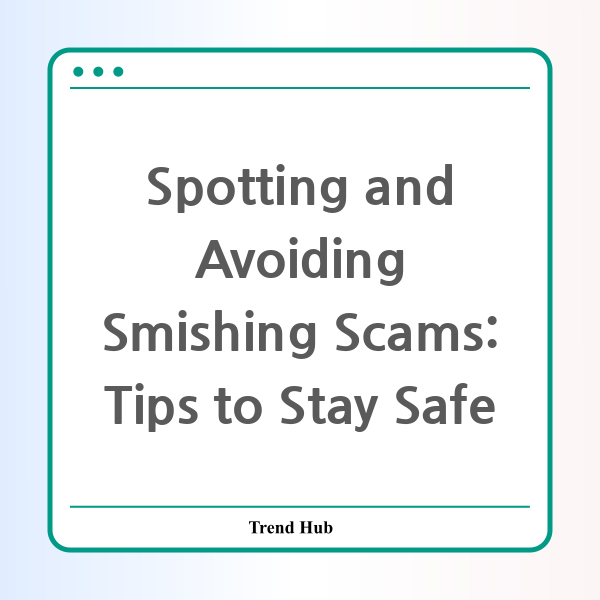* This website participates in the Amazon Affiliate Program and earns from qualifying purchases.

Have you ever received a text message claiming you owe money for unpaid tolls? If so, you may be a target of the latest "smishing" scam. This growing trend has caught many off guard, and it’s important to know how to spot and avoid these fraudulent messages. In this post, we’ll dive into the nature of smishing scams, how they work, and what you can do to protect yourself.
What Is Smishing?
The term "smishing" is a combination of SMS (short message service) and phishing. It refers to deceptive text messages designed to trick individuals into revealing personal information, such as credit card numbers or passwords. Recently, scammers have been impersonating toll agencies, particularly the EZDriveMA program in Massachusetts, to lure unsuspecting victims.
How the EZDriveMA Scam Works
Victims of the EZDriveMA smishing scam receive messages stating they owe money for unpaid tolls. The messages typically include a sense of urgency, claiming that failure to pay will result in substantial penalties. Many people, including those who regularly use toll roads, may find these messages plausible, especially when they’re crafted to look legitimate.
However, it’s crucial to note that these messages are not from the toll agency. They are part of a broader trend of scams, which have been reported not just in Massachusetts, but across the country. The messages sent by scammers can appear to come from random phone numbers and are not necessarily linked to any actual toll usage.
How to Recognize a Smishing Scam
Recognizing smishing scams can be tricky, but there are telltale signs you can look for:
- Request for Payment via Text: Legitimate agencies, such as EZDriveMA, will never request payments through text messages.
- Suspicious Links: Most smishing texts contain links that may direct you to fraudulent websites. Always be cautious of any link, especially if it appears out of character for the organization.
- Unusual Urgency: Scammers often create a sense of urgency, hoping to manipulate you into acting quickly without thinking things through.
Steps to Take if You Receive a Smishing Text
If you happen to receive a suspicious message regarding unpaid tolls or any other urgent requests for payment, take the following steps:
- Do Not Click Links: Never click on hyperlinks in unsolicited texts.
- Verify the Source: Check the official website of EZDriveMA or contact their customer service directly at 877-627-7745 to confirm if the message is legitimate.
- Report the Scam: File a complaint with the Internet Crime Complaint Center (IC3) and include details like the number from which the text was sent.
- Delete the Message: Safeguard your personal information by deleting any suspicious texts.
How to Protect Yourself from Smishing Scams
In addition to responding appropriately to scam messages, there are proactive steps you can take to reduce your risk:
- Don't Click on Unknown Links: Always be cautious with texts from unknown numbers. If it looks suspicious, delete it.
- Keep Your Software Updated: Regularly update your phone’s operating system to ensure you have the latest security features.
- Be Wary of Shortened URLs: These can conceal the true destination of the link, making it easier for scammers to lure you into malicious sites.
- Trust Your Instincts: If a message feels off or too good to be true, it probably is. Trust your gut and don’t engage with suspicious content.
Conclusion
As technology continues to evolve, so do the tactics employed by scammers. Staying informed about smishing scams and knowing how to recognize and respond to them is your best defense. By following the guidelines we've outlined, you can protect yourself against these deceptive messages and secure your personal information. Remember, if something doesn’t seem right, it’s always better to err on the side of caution. Stay safe out there!
* This website participates in the Amazon Affiliate Program and earns from qualifying purchases.